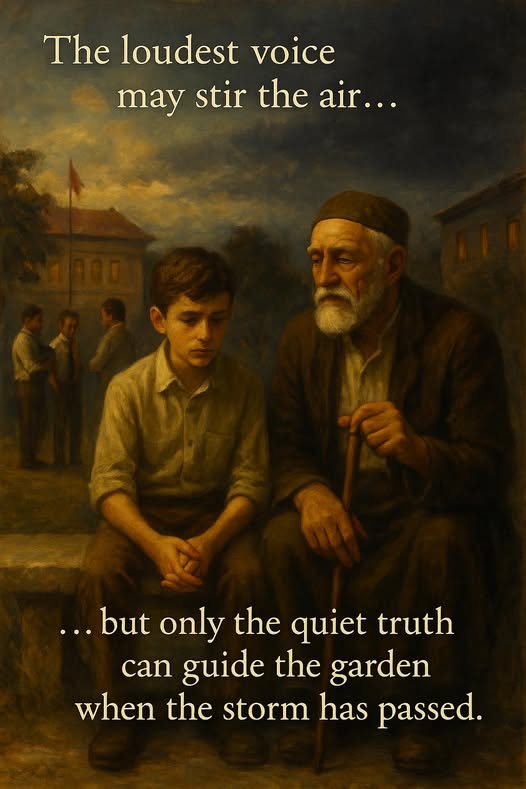
The echoes of the mock parliament still clung to the school like the scent of rain after a storm. Though the clouds had cleared, the air carried that same restless weight—something unspoken, waiting.
The courtyard was unusually quiet for an evening so close to the vote. The banners that had once fluttered boldly in the breeze now hung limp, as if even the fabric was holding its breath.
Emil sat beside his grandfather on the stone bench near the flagpole. The week’s debates replayed in his mind—sharp words traded like coins, promises offered as if they cost nothing, and silences that seemed heavier than any speech.
Across the yard, two student leaders stood in deep discussion, their heads bent close. One pointed to a notebook filled with neat columns of numbers; the other gestured toward the gathered students beyond, where smaller conversations buzzed like low, anxious bees.
“Grandfather,” Emil asked, “how do people decide who to trust when both speak so well?”
Grandfather’s eyes followed Emil’s gaze. “Before a vote, speeches grow like weeds after rain—quick, loud, eager to be seen. But roots…” He tapped the bench with his cane. “…roots are hidden. You find them not in the noise of a promise, but in the quiet of what a person has already done.”
Emil frowned. “So the clever one may win, even if the steady one is better for the garden?”
“Sometimes,” Grandfather said, “the storm chooses the wrong branches to break. But storms are not the end. What matters is who can still stand when the wind dies.”
From the far side of the yard, a small group of undecided students walked past, whispering to one another. Emil wondered what words might tip their choice—and whether they would ever see the roots beneath the soil.
Somewhere deep inside, Emil felt the uneasy truth: the garden’s fate might depend on how well the voters could see in the dark.

